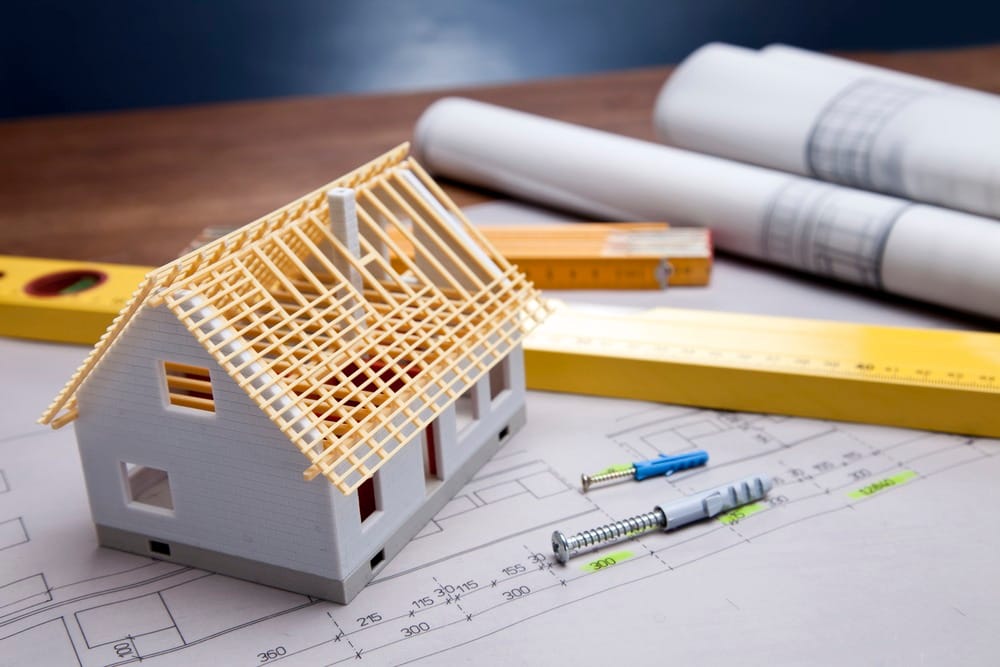For experienced and beginner investors alike, there’s a lot of appeal to new construction. But is it genuinely worth the premium?
Set Your Metrics — Think About Your Investment Goals
Before you fall in love with a specific property, sit down and think of your investment goals regarding cap rate and appreciation. Consider how much cash you have to invest and set aside for reserves. Explore the financing options that are available to you. Ask yourself if you’re willing to deal with expensive remodeling and repairs. And don’t forget to factor in costs for property management, insurance, and utilities.
The Benefits of New Construction
The idea of buying a new building is inherently appealing. It feels good to own a shiny, brand-new asset. But is new construction worth the premium you will likely pay? In many cases, the answer is yes.
Low Maintenance
For one, you should expect maintenance to be pretty straightforward on new construction, especially for the first few years of operation. All appliances will be brand new, and with a bit of preventative maintenance, you shouldn’t expect to have any major catastrophes in the first couple of years after you buy.
Higher Rents
New construction will also be easier to lease up at a premium rate. Landlords aren’t the only ones who like shiny new buildings. With features that appeal to high-quality tenants, like wide open floor plans and design that allows for lots of natural light, you won’t get much pushback on higher rents. And along with higher rents come high-quality tenants with good credit and favorable renting history, saving you headaches down the road.
Efficiency
New construction is highly energy efficient. Between low-draw appliances, LED lighting, and enhanced insulation, utilities will likely be much less expensive. If your tenants pay utilities, this could be a nice bonus that gives them the push of encouragement necessary to get them to sign a lease. Also, with new construction, there is essentially zero risk of encountering harmful building materials. You won’t find any lead or asbestos in a brand-new building.
No Pressure to Remodel
When you buy new construction, you won’t feel any pressure to remodel or make upgrades. Remodeling is a challenging process. Experienced value-add investors who know the ropes and have a rolodex of preferred contractors probably won’t mind remodeling, but less experienced investors will definitely have an easier time with new construction. If you buy new construction before it is completed, you may have the option to customize some options. If this is a property that you could see yourself using as a primary residence someday, the ability to customize it may be appealing to you.
Doing Something Good
You can feel good about investing in new housing. With housing in short supply, any contribution to adding housing makes more room for more tenants and makes housing a little more affordable for everyone.
The Drawbacks of Buying New Construction
Rising Cost of Materials
The cost of building materials is steadily climbing. Shortages in lumber, copper, and steel resulted from the closure of mills and plants early in the pandemic, anticipating a sharp decline in demand. However, this decline in demand never really came. With high demand and reduced supply, the price of these building materials had nowhere to go but up. It costs homebuilders more than ever to put up a new building, and these costs get passed to homebuyers.
High-Maintenance Tenants
Tenants paying premium rents to live in a shiny new building may expect everything to be perfect and go off without a hitch. If you get tired of dealing with these types of tenants, you may do well to retain the services of a property management company.
Paying Ask or Above
It’s a seller’s market in Windsor right now (and in most other places as well). Because of this, you may also find yourself competing against buyers in search of a primary residence. These kinds of buyers will be less concerned with investment performance and more concerned with getting into the home of their dreams. Market conditions being what they are, it may not be the best time to snag a deal on new construction. You should be prepared to pay asking or potentially more. With real estate being as hot as it is, paying over asking may not be a bad thing. It’s up to you to analyze the deal and compare it with your own investment criteria.
Other Options: Used-but-loved? Fixer-upper? Teardown?
Many houses on the market today fall into the realm of used-but-loved. These are not new homes but still have life left in them — potentially a lot of life if properly remodeled and maintained. These are generally solid investments that you would expect to provide moderate levels of risk and reward.
Fixer-uppers come with increased risk but offer potentially higher returns. You might have the opportunity to push the purchase price down, add value to the property, and make a profit. For example, you might be able to remodel a kitchen for $10,000 and add $30,000 of value in the process — this is called the principle of contribution. Conversely, you could buy a vintage home and find that it requires a range of repairs that are far more expensive than you had anticipated. Using an experienced inspector can help to prevent this, but the risk is still there.
The Bottom Line
Ultimately, it comes down to the individual deal. The right new construction building could provide tons of value if it’s in a rapidly developing area with built-in supply constraints. The key is careful analysis of the micro-location where the deal is located. Your goal should be to determine if the supply constraints, predicted appreciation, cash flow growth align with your personal investment goals.






